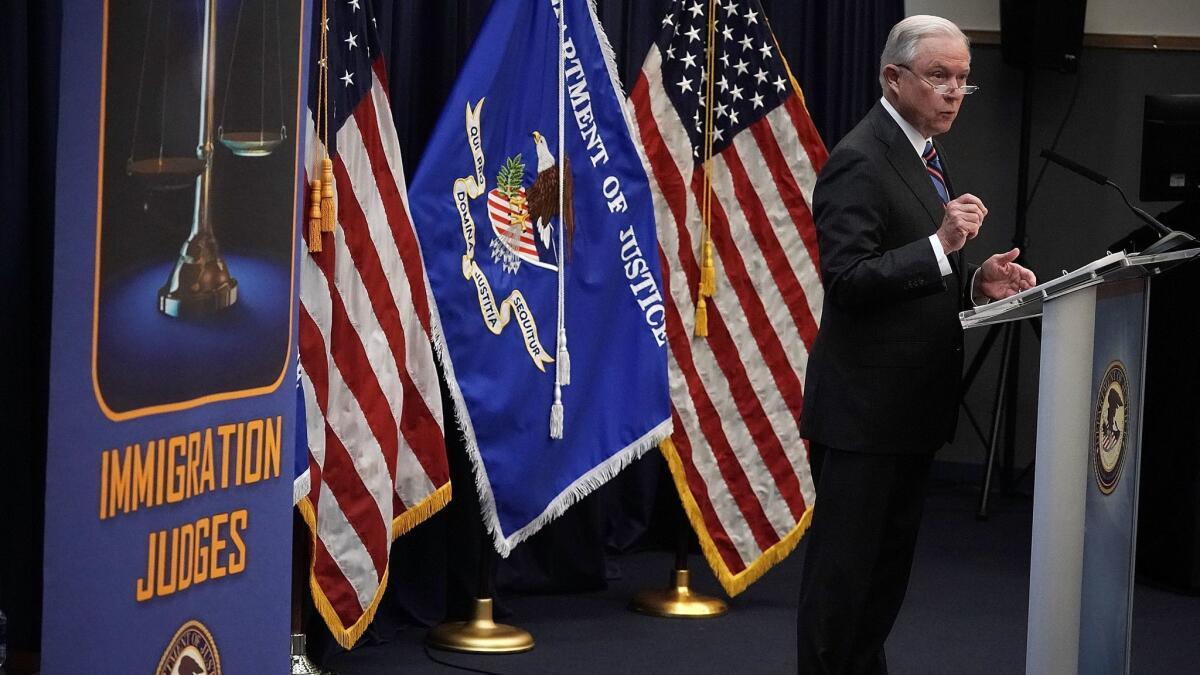More immigration judges are coming to L.A. Will that alleviate the nation’s second-largest backlog?

- Share via
Los Angeles has the nation’s second-largest immigration court backlog, with 29 judges handling 72,000 pending cases.
That’s including four judges who started within the last few months. An additional 10 are expected to be sworn in next week, according to Judge Ashley Tabaddor, who leads the National Assn. of Immigration Judges.
But she says that won’t fix the problem.
“We’re just transparently being used as an extension of the executive branch’s law-enforcement policies, and as a political tool,” she said.
U.S. Atty Gen. Jeff Sessions welcomed 44 new judges last week, addressing them at a kickoff for their training with the Executive Office for Immigration Review. He said the administration’s goal is to double the number of judges active when President Trump took office.
“As you take on this critically important role, I hope that you will be imaginative and inventive in order to manage a high-volume caseload,” Sessions told them. “I do not apologize for expecting you to perform, at a high level, efficiently and effectively.”
There are 351 judges in about 60 courts around the country — up from 273 judges in 2016. These judges manage a backlog of nearly 750,000 cases, a figure that has grown from a low of less than 125,000 in 1999. Last year, Sessions introduced a “streamlined hiring plan” that cut the hiring time for immigration judge candidates by more than half.
The EOIR has the funding for 484 judges by the end of the year, said spokeswoman Kathryn Mattingly.
Tabaddor said the impending quotas and production deadlines, which take effect next month, have caused severe anxiety among judges. Justice Department directives that were announced in April outlined a quota system tied to performance evaluations under which judges will be expected to complete 700 cases a year to receive a “satisfactory” rating.
Hiring more judges won’t be enough to alleviate the pressure they’re all under, Tabaddor said.
“It’s pitting the judges’ livelihood against their oath of office, which is to be impartial decision-makers,” she said, calling it an “assembly-line formula.”
Tabaddor said there also isn’t enough space for new judges, so some might not start right away. She described the downtown L.A. offices as cramped, with law clerks sharing offices or cubicles. And she said additional support staff members have yet to be hired.
andrea.castillo@latimes.com | Twitter: @andreamcastillo
More to Read
Sign up for Essential California
The most important California stories and recommendations in your inbox every morning.
You may occasionally receive promotional content from the Los Angeles Times.














